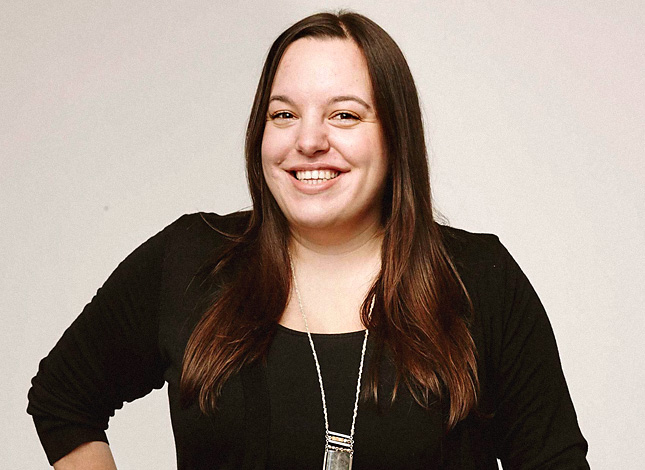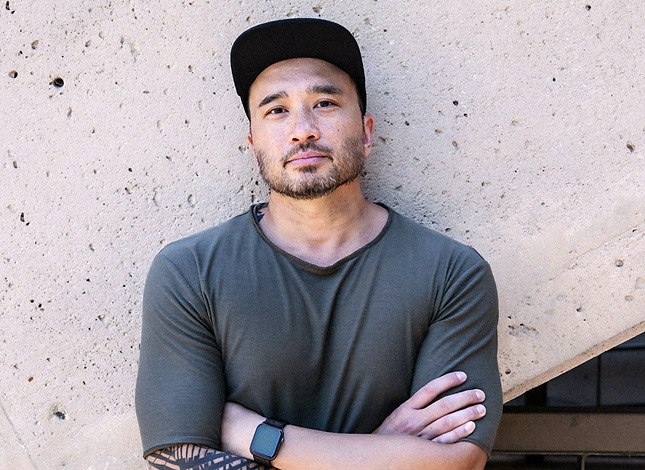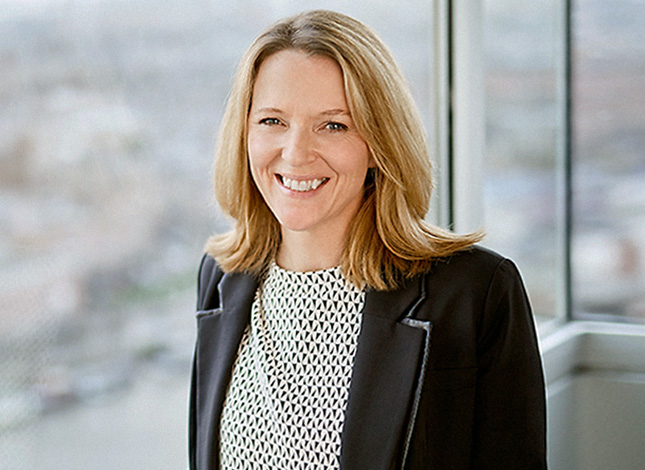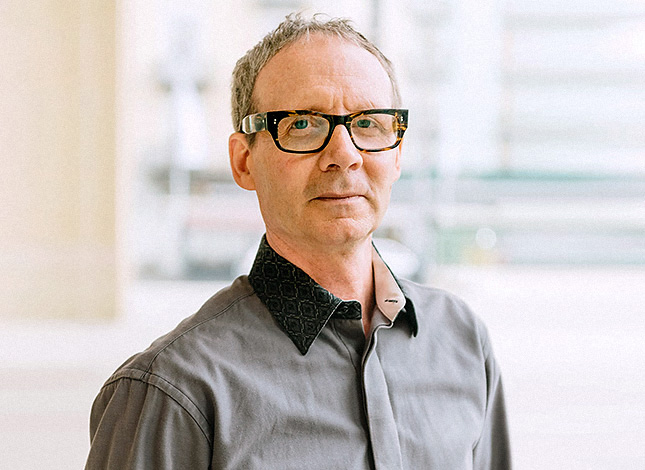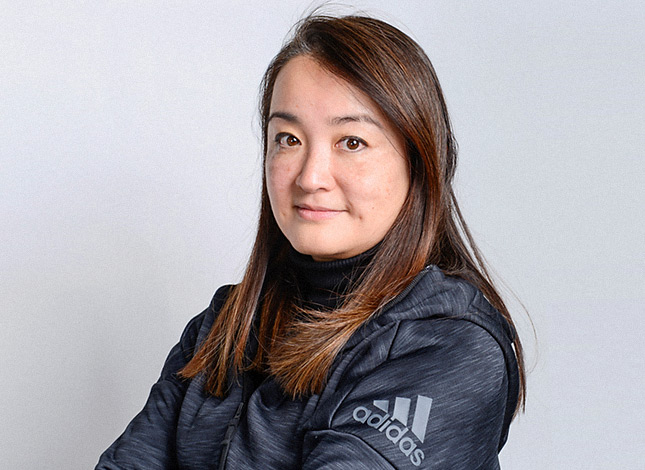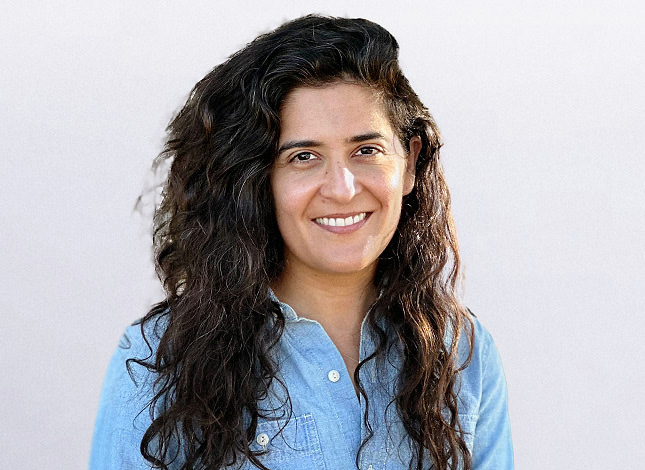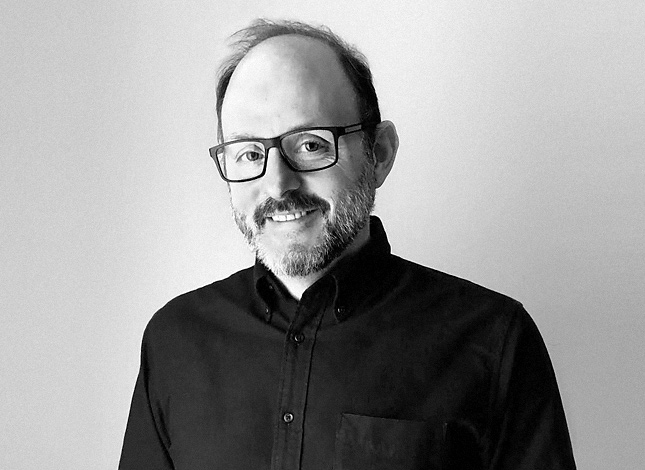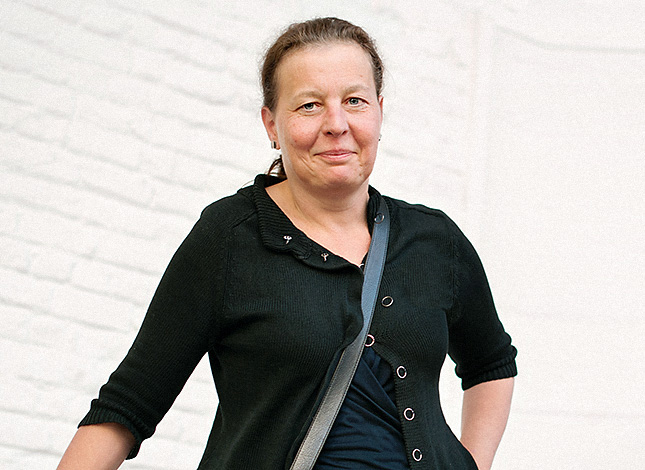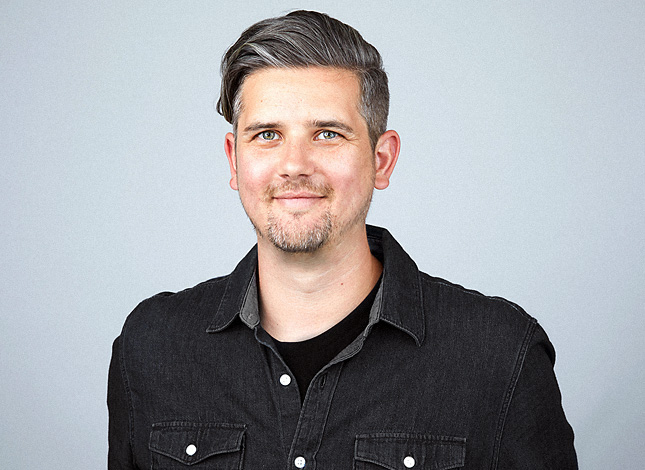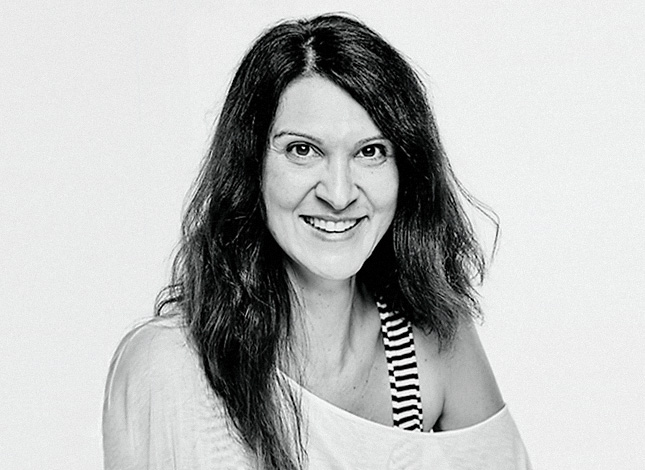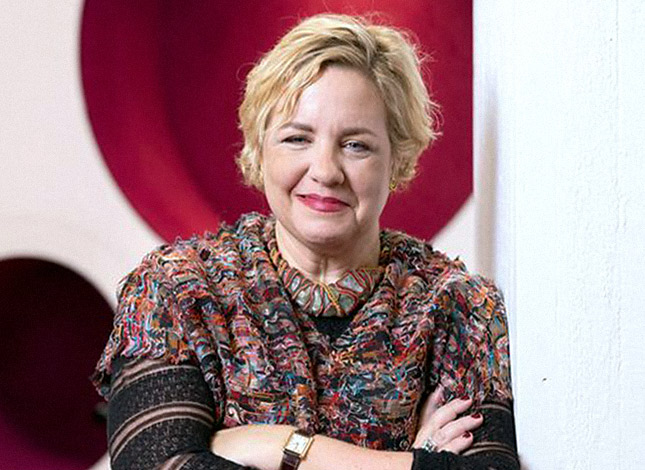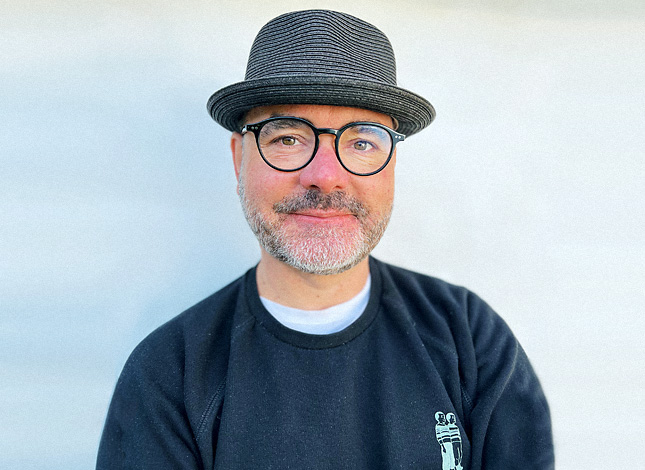SDD Leadership Summit
In line with last year’s conference theme, in 2023 we continued to focus on creating value for the long run. Much needs and can be done to improve upon tackling short-termism. In Barcelona on September 15 & 16, a special edition of the yearly Service Design Days was organised for and by design leaders from around the world to converse about this pressing topic. Dedicated to unlocking servant leadership and translating ideas into impact, the Leadership Summit convened creative leaders to connect, learn, build, discuss, share learnings and challenge the status quo.
Leadership is a dynamic and complex process that requires those who lead to navigate ever-changing landscapes and design for the future. To be effective, you must be resilient, adaptable, and capable of embracing uncertainty. Anticipating change, staying ahead of the curve, and working collaboratively with diverse teams are essential qualities for leaders to possess in today's fast-paced world. This counts even more for design leaders. Effective creative leadership means always thinking about what's next and having a keen sense of what the organisation needs to thrive in the long run while bearing in mind social and environmental responsibilities.
To achieve these goals, you must take risks and engage in partnerships for change that can help drive innovation and create positive impact. This requires a deep understanding of the ecosystem in which the organisation operates and a willingness to challenge assumptions, embrace new perspectives, and pivot as circumstances dictate.
This can be a challenging task when you are the only person in your organisation with this level of expertise. Design leaders often find themselves feeling lonely and disconnected from their peers, with no one to turn to for a simple chat, advice or support. Although it’s great that design is getting a strategic seat at the table and has a say on how to tackle complex, interconnected challenges, being the voice of people - let alone the planet - isn’t always appreciated and often considered too activist. However now, more than ever, it's time to stand up, take action, and make change happen. That is why we organised the SDD Leadership Summit for creative leaders. Not online, but physically in Barcelona, to have as many inspiring encounters as possible.
The program
This SDD Leadership Summit spans four tracks spread over two days: Friday September 15 and Saturday September 16. The tracks are programmed through the lens of creative leadership, each with an immersive and interactive set-up. All tracks are a carefully curated selection of sessions and activities.
All sessions are plenary and address different aspects of how to become a leader of the future.
The tracks are highly interactive and participative, and look at key aspects via a combination of listening and doing in which everyone is involved.
This Leadership Summit kicks off on Thursday, September 14 around 18:00 CEST with drinks and bites at a beautiful spot in the city. We therefore recommend that you arrive in Barcelona on time.
Track 1 Organising for change Organising for change means creating a structure within the organisation that supports resilience, adaptability, and agility. This requires creative leaders to build diverse teams that can bring a variety of perspectives to bear on complex problems, as well as to foster a culture of collaboration, open communication, and continuous learning. Knowing how to effect change is just as important as knowing what to change. Having the skills and resources to take action and implement the necessary changes is just as crucial as having a clear understanding of what needs to be done. How to structure innovation? How to engage the right people, get buy in and secure commitment? How to make real progress toward purposeful transformation? This track focuses on all of that and more.
Session 1 - Resilient leadership - thriving in turbulent times
Team: Mariana Amatullo, Natsuko Hara and Moira Buzzolani
Not that long ago, leaders basically had to figure out what to do and then tell their teams what, when, where, and how to do it. Today’s creative leaders face not only a whole new set of expectations from their teams and internal stakeholders, but also from their ever changing external environment. How to cope with these challenges? How to weather storms, and lead others through the waters of change?
Authentic, resonant or servant leadership are some ways we are starting to talk about how leaders need to understand who they are, what motivates them, and how they manage themselves before they can help their teams. Resilient leaders make resilient organisations. In this perfect storm moment, design leaders must build change readiness and capability for themselves and their teams. In the first session, we discovered how to harness the power of change, stay true to your values, and remain relevant as a design leader.
Session 2 - Navigating transformation - intentful change leadership
Team: Natsuko Hara, Moira Buzzolani and Mariana Amatullo
When implementing organisational change, leaders often prioritise the ‘what’ over the crucial ‘who’ and the ‘how’. This oversight risks relying on old routines, resulting in busy actions without genuine transformation. It can lead to rushed decision-making, neglecting self-renewal, and resorting to problem-solving and micromanagement.
How can change be approached effectively? How to balance different leadership styles, from leading teams via discipline, prioritisation and critical conversations, to an idealistic leadership challenging status quo? The latter requires starting small and experimenting with new ways of working under similar circumstances. Participants got to know successful frameworks and defined a series of actions focusing on encouraging and leading healthy teams during a time of change.
Track 2 Designing for what’s next Maintaining a focus on the long run, rather than getting bogged down in short-term thinking, means having a perspective that looks beyond the immediate future to consider the potential outcomes and consequences of decisions and actions over an extended period. It involves prioritising goals and objectives that are important and meaningful in the long term and working towards them deliberately and consistently. By staying true to their organisation's vision and mission and taking a proactive, strategic approach to change, design leaders can help ensure that their organisation remains relevant and resilient in the face of disruption and uncertainty. This track focuses on long-range, big-picture thinking and how to move teams and organisations into the exciting unknown.
Session 1 - Finding patterns - looking backwards to move forward
Team: Phil Balagtas and Tino Klaehne
Conventional thinking about the future tends to assume a ‘business-as-usual’ mentality. However, in today's complex organisational and environmental realities, organisations and teams require servant leaders who can see clearly amidst confusion. Therefore, it is necessary to analyse the past and examine cultural and systemic events that have brought us to where we are today. By looking through various lenses, we can gain a better understanding of future trends and anticipate their impacts and outcomes.
The products, services, and organisations that ensured success in the past may not guarantee success today, let alone tomorrow. Hence, cultivating a critical and reflective mindset is essential to recognise the full realm of possibilities before us. By exploring new approaches, we can incorporate more critical thinking into both our leadership practice and our organisation.
Session 2 - Envisioning impact - creating actionable visions of the future
Team: Phil Balagtas and Søren Lethin
The future is inherently ambiguous. How can design leaders confidently support their organisations in addressing tomorrow's problems without their organisation getting lost in translation, overwhelmed by possibilities, and settling for short-term wins? By perceiving upcoming challenges as opportunities and adopting a need-based and solution-focused mindset, they can prepare to be intentional and authentic in their actions.
To foster a futures mindset within their organisation and maintain enthusiasm, investment, and advocacy for future visions, visionary leaders must exert discretionary effort and be willing to withstand opposition to gain maximum buy-in. Navigating their teams and organisation into the unknown by creating a vision of the future that can be acted upon today. Creating an environment where people choose to join and achieve great things.
Track 3 Leading in complexity Today more than ever it’s necessary to effectively navigate complex and uncertain situations, and develop innovative solutions in the face of ambiguity and changing circumstances. Leading in complexity requires a deep understanding of the systems and networks that operate within the organisation’s context, as well as the ability to collaborate and communicate effectively with a diverse range of stakeholders. How to go beyond understanding the interrelationships between various parts of this ecosystem and identifying potential points of leverage to developing interventions that can have a transformative impact on the system as a whole? How to anticipate and respond to complex challenges in a way that is both innovative and strategic? This track helped participants to create more resilient systems that can better adapt to changing circumstances over time.
Session 1 - Cocreating value - designing impactful solutions
Team: Peter Jones, Kristel van Ael and Shauna Carey
As crisis fatigue sets in, the time is ripe to seek potential solutions and invest in those with lasting impact. However, this cannot be achieved alone. Effectively intervening in systems requires innovative and adaptive approaches that engage broad networks of diverse stakeholders. By facilitating and fostering transformative value cocreation, distinctive and successful interventions can be established.
Like any other leader, design leaders must be well-equipped to tackle complex challenges that demand collective action. This involves building and mobilising alliances of diverse stakeholders around a shared vision for positive and lasting change, empowering widespread collaboration, innovation, and action. Supporting the capability of design leaders to lead in disruption requires a radical evolution of leadership. Let’s shift the paradigm and create systems of change!
Session 2 - Reframing innovation - Effective systems leadership in high complexity
Team: Peter Jones, Kristel van Ael and Shauna Carey
We exist within interconnected systems. Climate systems, economic systems, political systems, social systems overlap and interact in complex ways. Achieving progress and tackling current and future challenges requires abandoning traditional top-down, hierarchical, and linear approaches to implementing change. Instead, it demands an understanding of the complex systems that shape the challenges to be addressed. Yet, how do we reframe innovation to break boundaries and raise system-level challenges to management?
Leading transformation and designing for complexity challenges requires unlearning, rethinking, and innovating to contribute to positive system change. For addressing the complexity, dynamism and scale of multi-dimensional challenges, design leaders need to be able to assess barriers, leverage drivers and complexity dynamics. Systems skills help any manager become a confident and resilient system leader capable of understanding, examining, and positively leading in complexity.
Track 4 Introspecting leadership The leadership qualities of the past don't work anymore. A future design leader must be personable and proactive, with clear ethics and values. A servant leader who motivates and strives to empower their teams. A humble leader who is accessible, sitting among their team members and initiating dialogue with them. By creating an environment in which individuals feel empowered to take ownership of their work and contribute to the collective mission of the organisation, design leaders can create a culture of resilience that can withstand the challenges of a complex and uncertain world. This track focuses on developing self-awareness and being mindful – fully present and aware – to become a more effective leader, making wise and brave choices for the future.
Session 1 - Becoming a better leader - developing self-awareness
Team: Annahita Varahrami and Nina Warburton
Self-awareness plays a vital role in leadership development, serving as a fundament for various essential qualities such as empathy, emotional intelligence and radical candour. It is not only a prerequisite for learning and improvement but also forms the cornerstone upon which many other leadership competencies are built.
Being self-aware not only creates value but also empowers leaders to influence others. It is crucial for self-control, discernment, creativity, learning, and growth. A foundation of self-awareness leads to self-acceptance and, ultimately, self-actualisation, enabling individuals to reach their fullest potential.
Session 2 - Embracing the shadow - unleashing leadership strengths
Team: Annahita Varahrami and Nina Warburton
Creative leaders must be aware that even their strengths can become weaknesses if left unchecked. Each of us possesses a shadow, representing the parts of ourselves we try to hide or ignore. Recognising and addressing these aspects is vital, as solely focusing on the shiny parts of leadership allows the shadow side to grow. By embracing our shadows, we unlock untapped potential within us.
Through awareness and practice, we can access, embrace, and channel the energy of our shadows in healthy ways, enabling us to express our full potential. This integration of all aspects of our psyche into a cohesive and impactful whole is the key to great leadership.
The line-up
Bringing together international design leaders, the Leadership Summit is an opportunity to reconnect face-to-face with peers and transform the way you lead. It's a place to be inspired, and to help inspire other future leaders. This means that all participants, from track facilitators to workshop members, are creative thinkers who love to share their experiences with others. Their fields of expertise span the entire range of design disciplines and beyond.
At this so-called 'unconference' it’s all about peer-to-peer interactions. In an intimate and safe setting, we invite participants to leave all distractions behind and fully immerse in this experience. During the two days, participants have the opportunity to share our learnings and insights towards making significant strides and gaining ground.
SDD Satellites
We cannot deny it. It’s time to challenge the status quo, turn the tide, and shape a radically different future: one that’s inclusive and regenerative. Creative thinkers can play a role in changing the way modern society lives and bringing together and integrating knowledge from different disciplines. In 2023, the Service Design Days took a step forward by facilitating the discussion both online and physically on 4 different continents, in the following cities: Milan, Buenos Aires, Singapore, Cardiff, Eindhoven, and Nairobi.
Each offered unique perspectives that enriched our understanding of global challenges, inspired us, and equipped us with actionable insights, fostering both a sense of urgency and empowerment. Our guidelines were the Sustainable Development Goals (SDGs) which address the global challenges we face. From participatory urban development in Milan to the redesign of Argentina's food culture, each event served as a microcosm of the broader global effort to use service design as a catalyst for positive change.
Milan - The future of the city - practising participatory service design and community involvement By 2030, the world is projected to have 43 megacities with more than 10 million inhabitants, most of them in developing regions. This means that 1 in 8 people are predicted to live in a megacity. The good news is that economists generally agree that, if handled well, urbanisation holds great promise for higher growth and a better quality of life. On the flip side, if handled poorly, urbanisation can not only impede development but also give rise to slums. According to the UN, one out of every three urban dwellers worldwide lives in a slum.
The SDD Satellite Milan - co-organised with UpTown - advocated for a paradigm shift in urban development, which emphasises the participatory engagement of all stakeholders in the process of remaking a neighbourhood or city. To contribute to its future, we need to understand and focus on the social transformation of the urban environment and the importance of local communities in it. The event combined a series of inspiring project examples on participatory service and social design with practical design frameworks for inclusive and participatory city-making.
Read more about the program and line-up.
Nairobi - The future of urban renewal - a case study of Ngara as a creative hub and model for other cities The SDD Satellite Nairobi - co-organised with Marathon XP - also looked at the future of urban renewal using suburb Ngara as a case study and model for other cities. Nestled in the vibrant city of Nairobi, Ngara serves as a microcosm of urban dynamics. Despite historical challenges such as congestion and safety concerns, its strategic location and diverse character make it a compelling focal point for revitalisation efforts. The ongoing transformation of Ngara aligns with Nairobi's broader vision for sustainable and inclusive urban development.
Neighbourhoods like Ngara stand as crucibles of transformation. Within these urban areas, designers confront a unique blend of challenges and opportunities. In this context, designers and other creative thinkers can assume a pivotal role, envisioning solutions that can not only mitigate conflict but also harness its transformative potential. The event united designers, researchers, urban planners, policymakers, artists, and creatives through engaging discussions and brainstorming sessions, proposing interventions that propel such transformative projects forward.
Read more about the program and line-up.
Buenos Aires - The taste of the future: redesigning a sustainable food culture in Argentina The Satellite event in Buenos Aires - co-organised with Universidad de San Andrés & La Diseñería - focused on (re)designing a sustainable food culture in Argentina, a country renowned for its rich culinary traditions. But as one of the largest producers and per capita consumers of meat in the world, Argentina's meat industry also carries serious negative consequences arising from an opulent food industry that are deeply intertwined and rooted in systemic issues within the food system. To tackle these issues, a holistic approach is needed that takes into account the interconnections between social, environmental, and economic factors in the food system.
How to turn the tide and avoid an even worse scenario in the near and distant future? As we strive to become active agents of change in our world, how can we reimagine and reshape the local norms of consumption to better align with the needs of our society and the planet? This Satellite event invited designers, policymakers and creative minds alike to debate and collaborate to understand how to mitigate the harmful impact of the food industry and propose a more sustainable future by pioneering strategies and foster cooperation among multiple stakeholders, such as the government, industry, civil society, and communities.
Read more about the program and line-up.
Singapore - The future of hospitality - serving the needs of guests, businesses & planet Tourism is one of the world's fastest growing industries and an important source of foreign exchange and employment, while being closely linked to the social, economic, and environmental wellbeing of many countries, especially developing ones. Tourism has been essential to the Singaporean economy for decades, but the negative impact on the environment and communities it relies on cannot be ignored. As visitors return in increasing numbers post-pandemic, it is critical to explore how we can envision and design services and guest experiences that minimise harm to the built and living environment, serving the needs of the city’s habitants and visitors as well as the planet.
By leveraging the power of design, we can address the industry's critical challenges, reduce its negative environmental impact, and rethink hospitality services and value propositions. At the Satellite event in Singapore - co-organised with Chemistry - attendees learned how to reframe Singapore's hospitality challenges and maximise its sustainability opportunities using practical design tools and strategies. The event was designed to be both inspiring and actionable, empowering all participants to take steps towards a sustainable future by designing better hospitality services that meet the needs of guests, citizens, businesses, and the planet.
Read more about the program and line-up.
Cardiff - 'Why should I care?' - Driving civic engagement through the power of design It is key that we should include all actors in the design process. A participatory design approach that encourages codesigning solutions, in which everyone is treated as equal collaborators, is essential. This also counts for civic engagement processes. But shifting cultural norms and emerging technologies are upsetting the status quo. As society becomes increasingly divided by misinformation, polarisation and isolation, the issue of engaging people with society is more important than ever. That’s why the Satellite event in Cardiff - co-organised with the BBC - wanted to start an informative dialogue among (service) designers, policy makers, researchers and community engagement professionals to find communication opportunities and yield innovative solutions to improve civic engagement.
People who are fully engaged in their cities, neighbourhoods or communities are motivated to vote, contribute to their local environment, shape politics, advocate, and act as stewards of public spaces and activities. To help citizens take action on behalf of themselves and their communities, it’s necessary to rethink the design processes, shape public policy, highlight the connecting factors and strengthen forces between policy and service design, design ways to increase democratic participation amongst (young) people, and collaborate with organisations to combat misinformation around the world.
Read more about the program and line-up.
Eindhoven - Thriving through change - embracing unknown futures in service design The world is in continuous transformation; through social, technological and environmental influences, we adjust and evolve over time. While designers are influenced and informed by these external factors, we also have an opportunity to shape the course of transformation ourselves. Our design decisions of today may impact the future. How can we navigate the balance between what lies in our power of influence and the unforeseen consequences of our design work? And is it possible to craft design propositions that not only withstand change but also thrive because of it?
It’s time for us, designers, to act and get out of our comfort zones. To push ourselves beyond our limits and explore new possibilities. To spark new perspectives and fresh ideas that will enrich our collective understanding of the challenges and opportunities we can create. At the Satellite event in Eindhoven - co-organised with Philips - many of this year’s learnings converged. Participants explored the long-term and holistic impact of design work in a continuously evolving and unpredictable world, and examined the role of social, technological, and environmental change in the design process and its effect on the work of designers.
Read more about the program and line-up.







